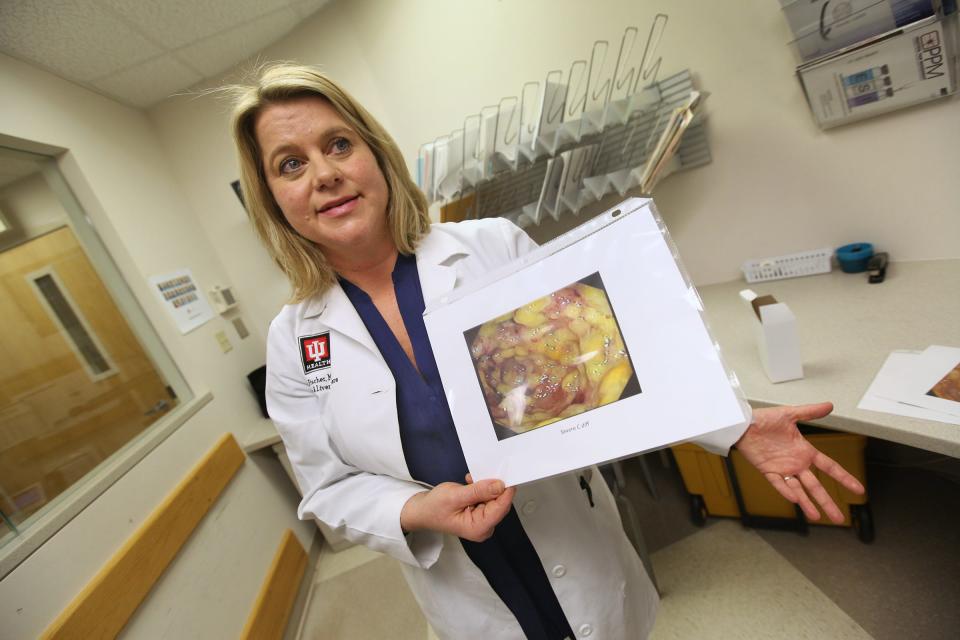Op/Ed: PASTEUR Act is a game-changer in effort to combat antibiotic-resistant superbugs
People in Indiana, across the country and around the world are facing a growing threat to their health from "superbugs," bacterial and fungal infections that are resistant to existing antibiotics and antimicrobial drugs.
We're facing a nightmarish scenario that's getting worse. Superbugs are continuously evolving ― and faster than scientists are inventing new treatments.
Doctors have been treating infections on a massive scale with antibiotics since World War II, after penicillin was discovered. Before antibiotics, common medical issues like an ear infection or a scraped knee were, at times, a death sentence. Antibiotics revolutionized our ability to treat wounds and infectious diseases, taking average life expectancy from 47 to 78.8 years.

But even our strongest, last-line-of-defense antibiotics may soon become ineffective ― a crisis we're accelerating by overusing and misusing these precious drugs. The pipeline of treatments to address new infections is dwindling. This confluence of factors could leave us with almost no way to combat the rampant spread of superbugs.
Research estimates that in 2019, antibiotic-resistant infections contributed to nearly 5 million deaths worldwide. By 2050, superbugs could kill as many as 10 million a year ― as many as cancer kills now.
In Indiana, the incidence rate for ventilator-associated events ― which include drug-resistant pneumonia and other infections acquired while on a ventilator in the hospital ― was 62% higher than the national average in 2020. Nationwide, ventilator-associated events and other drug-resistant infections rose in 2020 as hospitals treated a surge of COVID-19 patients.
We need to develop new antimicrobial drugs to ensure clinicians have the tools to treat patients. But that's easier said than done. The current antimicrobial market is broken, leaving us unprepared for drug-resistant infections patients currently face, not to mention future ones.
To understand why, it's important to know that the more an antibiotic is used, the more likely bacteria are to adapt and become resistant to the treatment, rendering it less effective. Doctors therefore try to prescribe antibiotics ― especially the newest, most advanced ones ― sparingly and reserve these treatments for critical scenarios.
We need to make sure antimicrobial drugs are used appropriately to give patients the best possible outcomes. Antibiotic stewardship programs, which are responsible for leading these efforts, are very successful when given the necessary resources for the job. But that isn't happening in many settings. Rural areas in particular are under resourced.
Using antibiotics carefully is a smart practice, medically speaking, but it also means drug companies face an uphill battle when it comes to developing new treatments. It costs more than $1 billion to create a new antibiotic ― meaning antibiotic makers normally need to sell millions of units just to break even. Once the antibiotic reaches the market, they can't rely on a traditional sales model, in which sales are based on the volume of product sold.
Due to this catch-22, many major companies have recently closed antimicrobial development programs ― and the future is bleak for small biotech companies taking up the mantle. The FDA approved just 15 antibiotics from 2010 to 2019. But according to Axios reporting, the companies behind five of those drugs have either declared bankruptcy or been sold for pennies on the dollar of their initial valuation.
Luckily, some members of Congress ― Indiana's own Sen. Todd Young chief among them ― recognize the threat posed by superbugs and are working to solve the unique problems within the antimicrobial ecosystem.
Last summer, Young introduced the bipartisan PASTEUR Act, which would adapt the current pay-by-unit model for government purchases of antimicrobials to a subscription-style purchase model. The government would be able to pay antimicrobial makers upfront through a contract for access to however many or few doses of a new antimicrobial they need.
This system would offer antimicrobial makers the security to invest in antimicrobial R&D while targeting federal resources to antimicrobials that address unmet public health needs. And, critically, PASTEUR would invest in our hospitals to strengthen antibiotic stewardship practices.
Superbugs pose a growing threat to Hoosiers, all Americans, and the entire world. Congress can help counter this threat with smart, bipartisan legislation like the PASTEUR Act.
Haley Pritchard, M.D., is medical director of the antimicrobial stewardship program at IU Health University Hospital and an assistant professor of clinical medicine at the Indiana University School of Medicine.
This article originally appeared on Indianapolis Star: 'Broken' Antimicrobial market needs fixing in fight against superbugs

